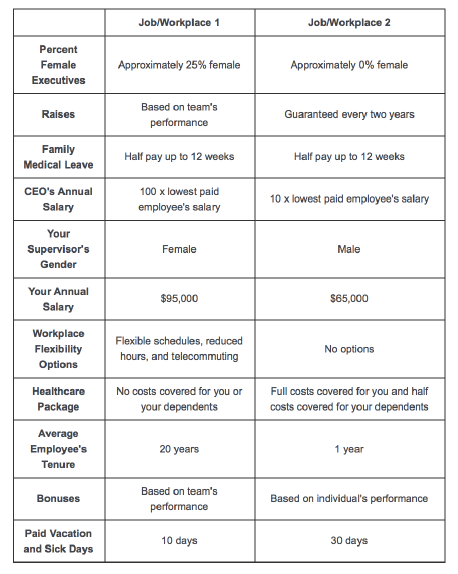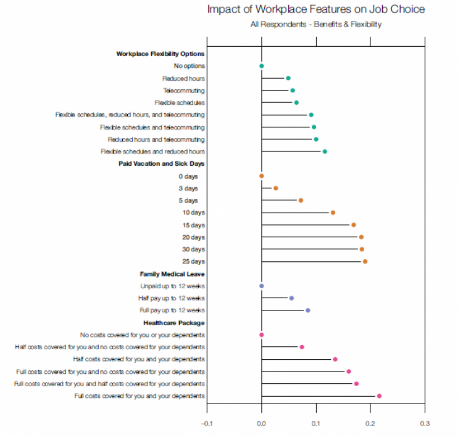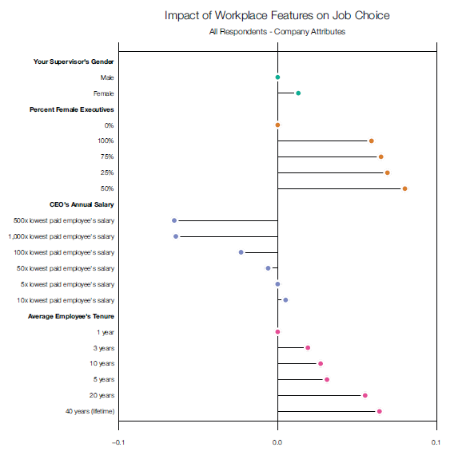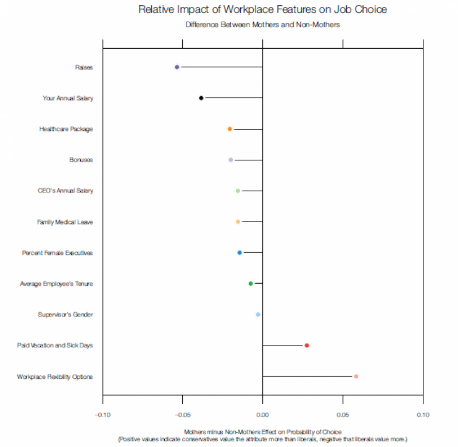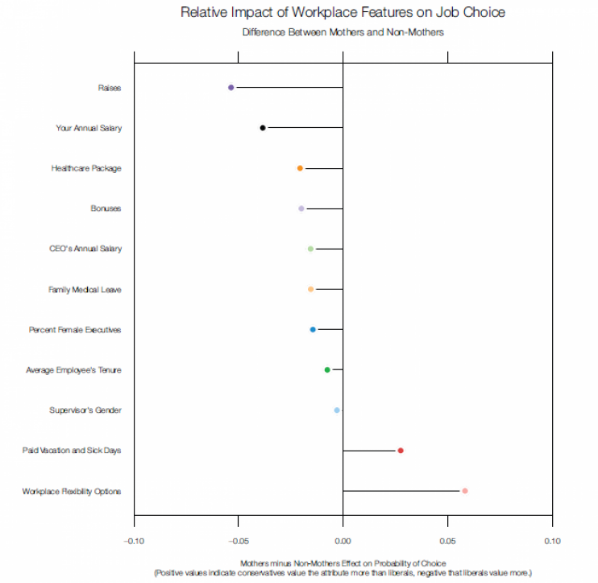Conservative women are more likely to be attracted to companies with generous health-care packages and low turn-over. Liberal women tend to place more importance on higher salaries and generous paid medical leave. Mothers from both sides of the political spectrum often value flexibility more than women without children, who say they appreciate ample pay over other perks.
That’s all according to a new study commissioned by the Independent Women’s Forum, a research group now brainstorming workplace policy updates that could please both Republicans and Democrats. (The group is hosting an event Thursday on the issues in Washington).
“Democrats address women in the workplace all the time,” said Sabrina Schaeffer, executive director of the IWF, who wants presidential hopefuls to propose more than "one-size-fits-all" solutions. “Republicans need to be able to offer alternative ideas. They need to understand the issues. They need to engage. They can’t be afraid.”
Over the last half century, labor policies in America haven’t changed much. Family structures, however, have utterly transformed. In 1960, for example, women financially supported only 11 percent of households. Today, 40 percent of working moms identify as breadwinners.
Many American workplaces, largely designed while most families could be supported by one income, make it difficult for parents today to succeed, said Kristin Rowe-Finkbeiner, executive director of MomsRising, a non-partisan advocacy group.
“Women make up half of the labor force for the first time in history,” Rowe-Finkbeiner said at a recent gender equality panel in Washington, D.C. “But our public policies are still stuck in the stone ages. It’s time to catch up.”
The growing national debate: How can lawmakers and employers best support working mothers? What changes to the workplace will boost them and the country?
Researchers hired by IWF started tackling this quandary with another question: What do women want? They showed varying job descriptions to 1,000 American women of “major demographic” backgrounds and asked them which seemed more desirable.
The competing packages looked like this:
Researchers then broke down which benefits most appealed to respondents. The below chart shows the average impact each feature had on the probability they’d choose a job with a certain feature, relative to the "lowest value" feature.
And here's how company attributes, like average employee tenure, mattered to respondents. A company where 50 percent of its executives are female, for example, has an 8-point edge on the desirability scale over a company with no female executives.
Values shifted by ideology. Women who consider themselves conservative reported different preferences than women who identified as liberal. Again, each point on the graph shows the difference between the groups in the average impact of features in a particular category compared to that category’s least attractive feature:
It makes sense that conservatives, who generally opposed the Affordable Care Act, valued private health-care packages. (Tenure, however, is a bit harder to explain.) And it make sense that liberals favored family medical leave: The U.S. currently guarantees none to employees of private companies, and mandating some is central to several liberal lawmakers' policy agendas.
But higher salaries? "Since the ideology of liberals does not favor material wealth, it does not make sense that liberals value more annual salary, and by so much," the researchers noted, offering no explanation.
Mothers and women without children, regardless of political ideology, also expressed differing needs:
"Since mothers have greater time constraints as a result of having children to care for," the authors wrote, "they should value more workplace features that either allow them to use their time more flexibly or that give them more time."
The report’s takeaway, according to Schaeffer: Different people across different backgrounds want different things. "Not everyone woman wants the same thing in the workplace," she said, "and I don't know why people sometime think they do."
Lawmakers should keep that in mind, she said, as American workers (of all genders) rally for change. And employers should consider ramping up benefits to attract more female workers, which, studies show, can boost a company's bottom line.
Of course, what women want isn’t dictated by their chromosomes. But it’s important to acknowledge working moms in the United States tend to face steeper uphill battles than working dads.
Take this national salary analysis, published Tuesday by the National Women's Law Center: Moms, on average, make 70 cents for every dollar paid to dads. Many low-wage workers have no access to paid sick days or maternity leave. And women across income levels often hide pregnancies, fearing discrimination.
Leaders on Capitol Hill and in corner offices across the country, no matter where they stand politically, can take steps to ease those problems.


